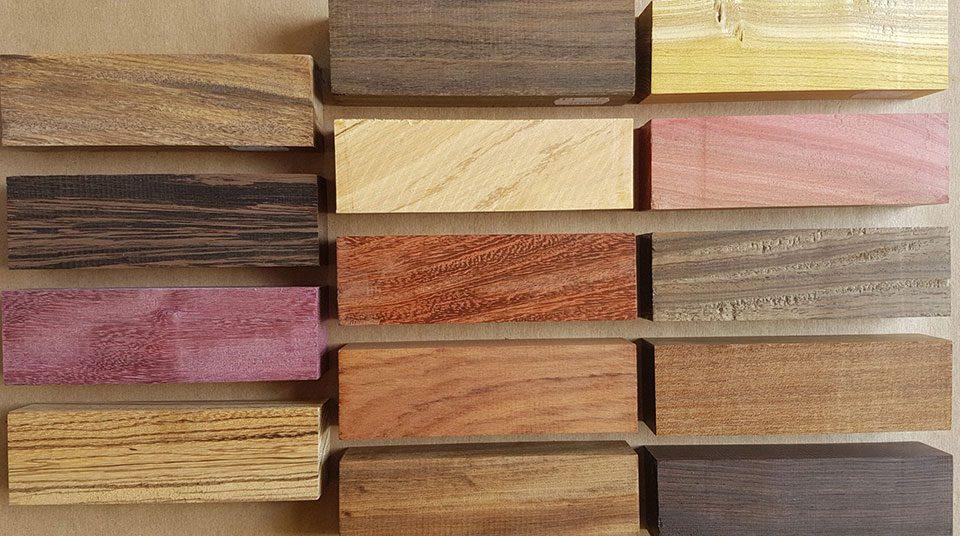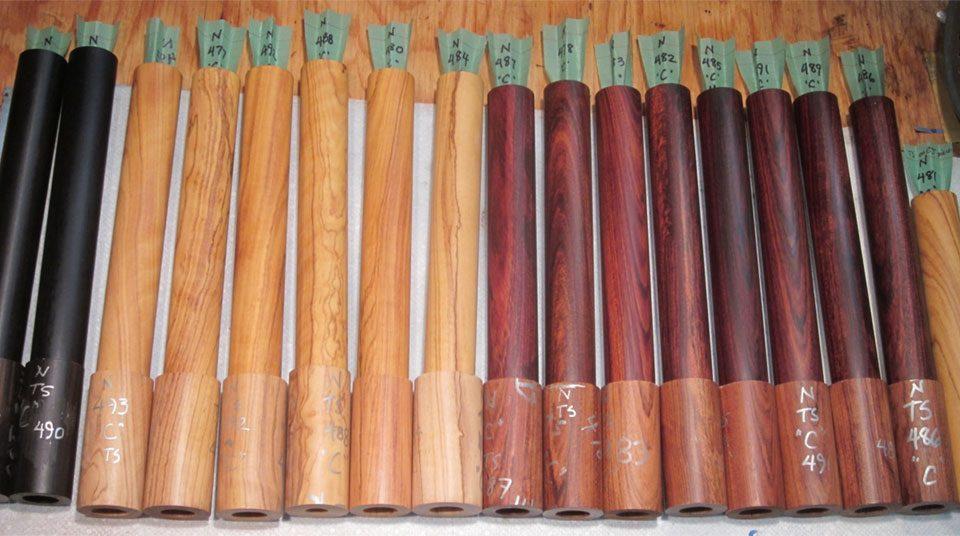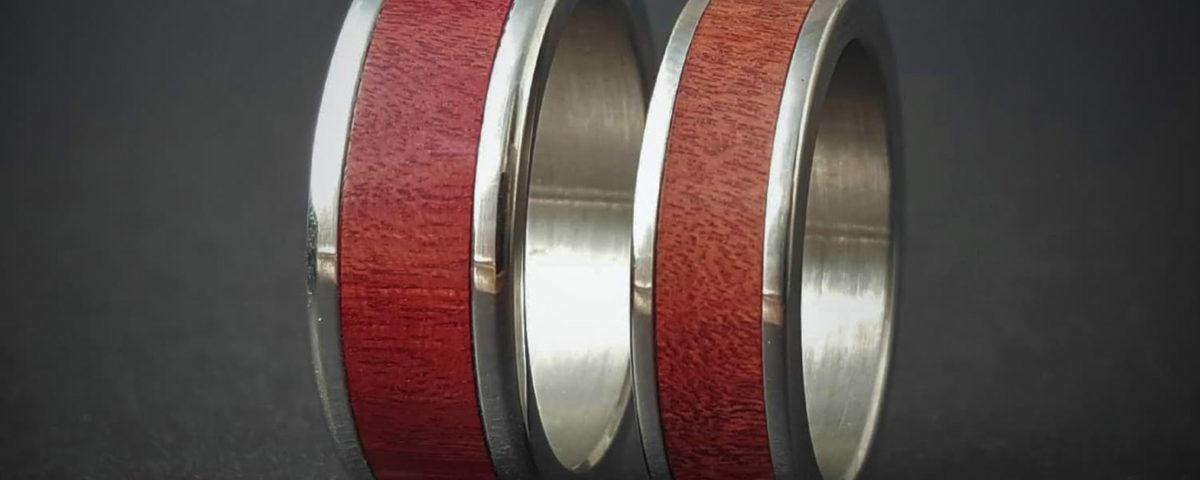
Over the last decade, the use of exotic hardwood for jewellery has continued to gain popularity.
In markets where metals and gemstones traditionally dominate, precious woods offer modern consumers something different and unique.

Rising popularity of wooden jewellery and watches
As an article in the New York Times noted, wood has “…been taking pride of place among the finest gems and watches.”
Over the past decade, luxury jewellers like Van Cleef & Arpels, Glenn Spiro, Boucheron and Annoushka have all launched collections that incorporate exotic hardwoods.
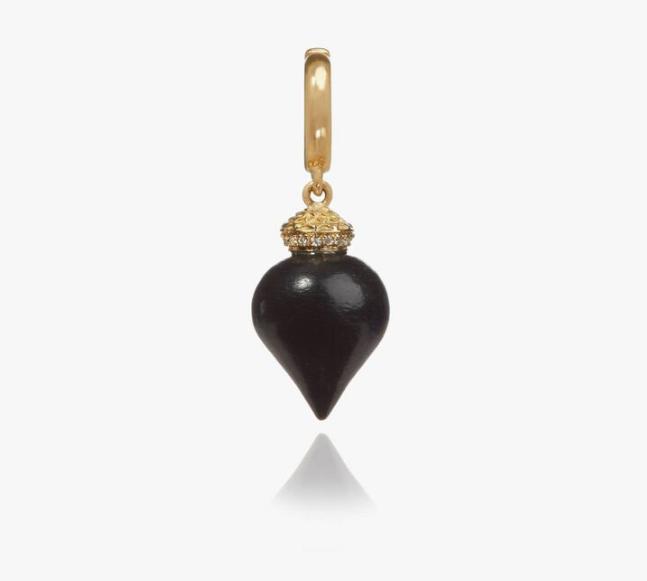
High-end watch makers like Patek Philippe and Piaget have also catered to their markets’ rising appreciation for wood, introducing watches with wood marquetry dials.
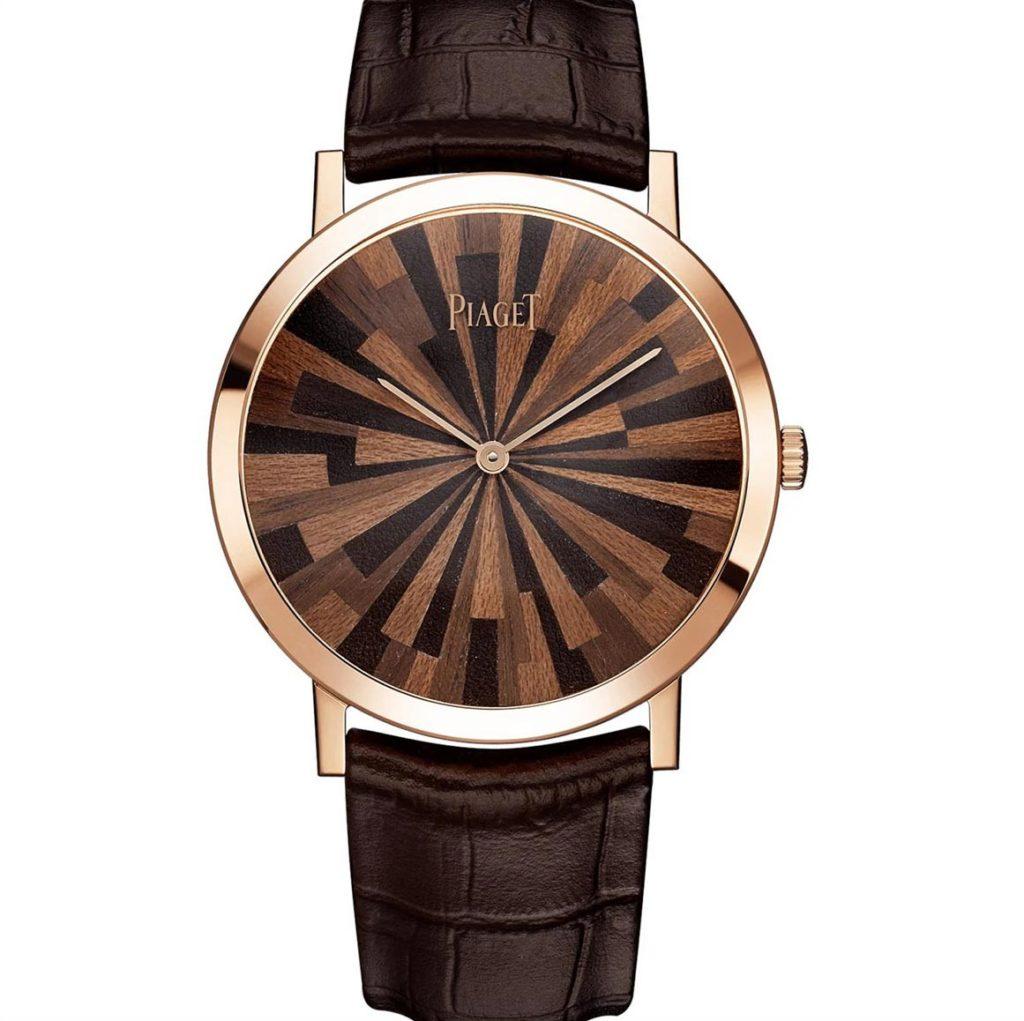
Of course, the use of wood for crafting jewellery is far from new. Wooden beads were found in the tombs of ancient Egypt. In African and Asian cultures, wooden beads and bangles have a history spanning centuries. Wooden rings, pendants and rosaries were popular in Medieval Europe, too.
What’s new is the growing popularity of exotic wood in high-end, contemporary jewellery pieces and accessories.
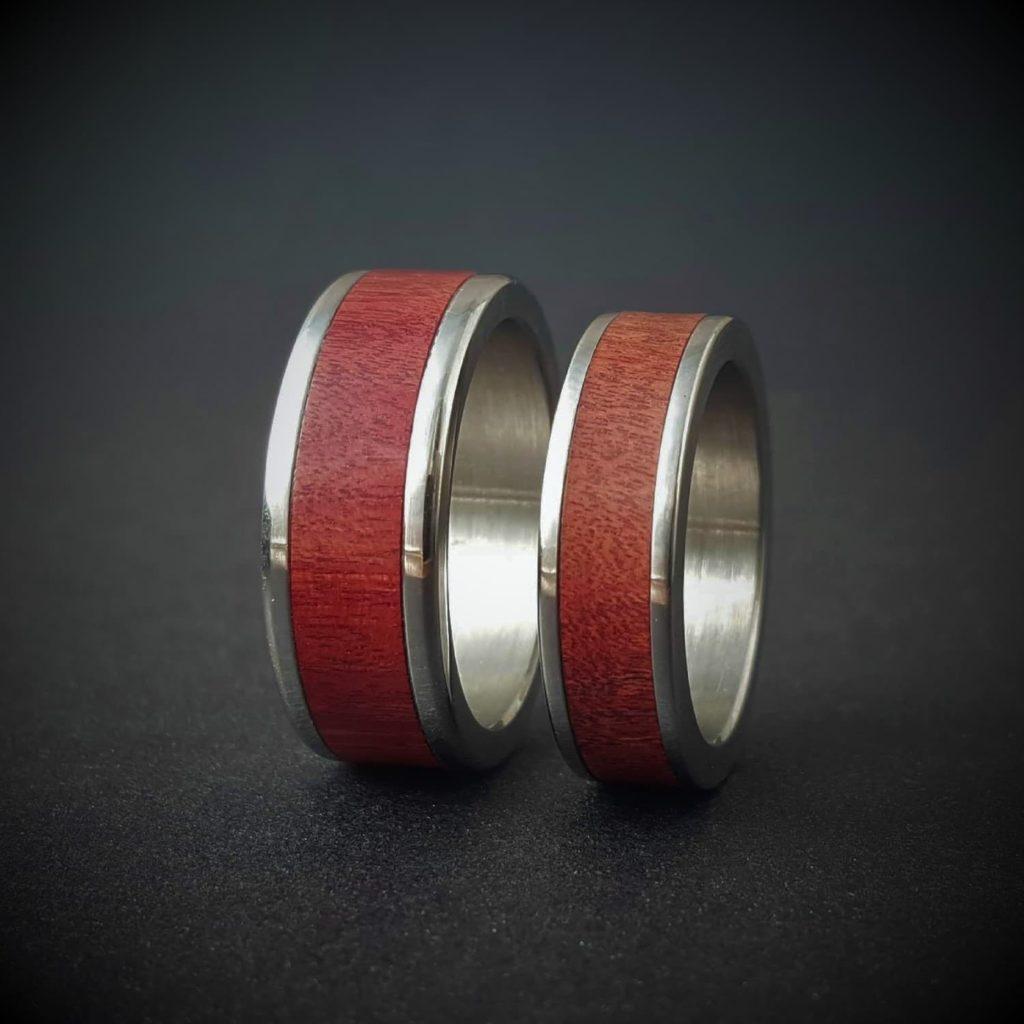
Advantages of hardwood for jewellery
As a material for jewellery, hardwood offers certain advantages:
- every single piece is unique in some way
- it is comparatively easy to work
- it is organic and bio-degradable
- with only a few exceptions, it is hypoallergenic
- it is lightweight and warmer than metal, for comfortable wear.
Provided it’s ethically and sustainably harvested, hardwood is an eco-friendly choice. It avoids the environmental and social harms often associated with mining.
Because it’s hypoallergenic, it’s also a good option for those who suffer from metal allergies.

Suitable exotic hardwoods for jewellery
For jewellery making, hardwoods provide the necessary durability. Unlike softer woods, they are strong, dense and comparatively resilient.
However, not all hardwoods are equally suitable.
Among the factors to consider are:
- workability
Some hardwoods require special tools to cut, for example. - stability
Certain hardwoods are less susceptible to expansion/shrinkage and discolouration than others. Expert air drying also plays a vital role in this. - sustainability and ethical sourcing of the wood
Environmental concerns are increasingly important to both manufacturers and consumers. - aesthetic qualities
Different species offer dramatically different colouring and grain patterns. - suitability for skin contact
A few hardwoods are known for their allergenic or even toxic resins.
Precious African hardwoods for jewellery
A number of African hardwoods are ideal for jewellery making, and provide a range of beautiful colours and grain patterns.
Pink/red ivory hardwood
Pink or red ivory is sought after for its gorgeous colouring, ranging from light pink through to dark red.
This special hardwood was once the preserve of Zulu royalty. Zulu kings carried knobkerries of red ivory, and royals wore red ivory jewellery. Today, the wood continues to be prized for a range of ornamental uses.
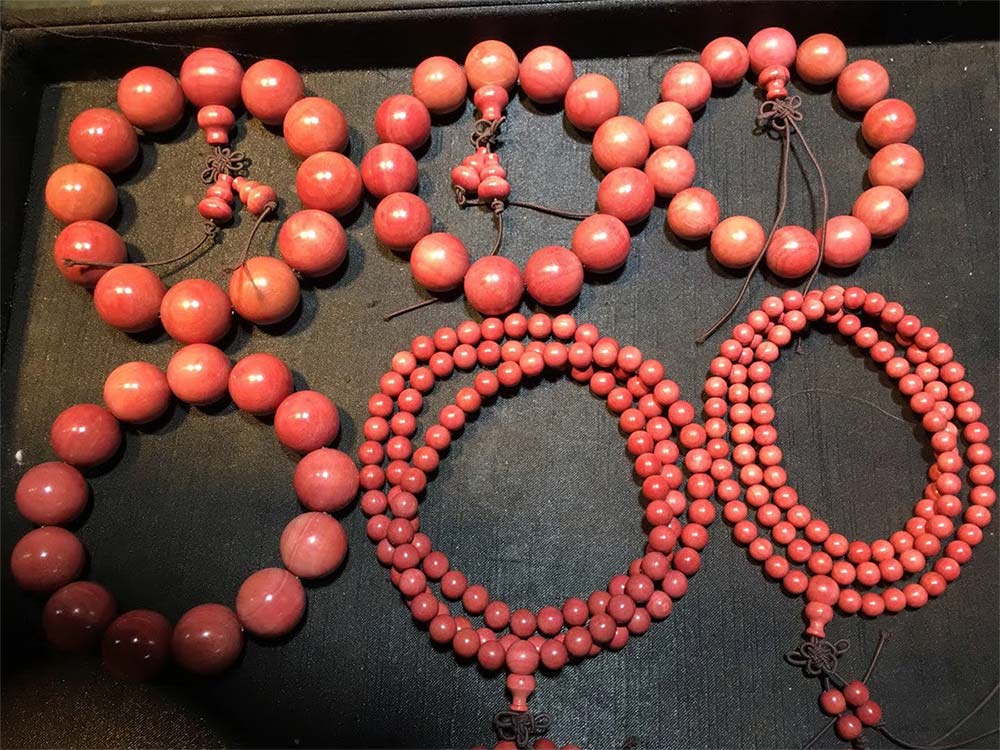
Red ivory works well on the lathe and with the chisel, and is suitable for turning and carving.
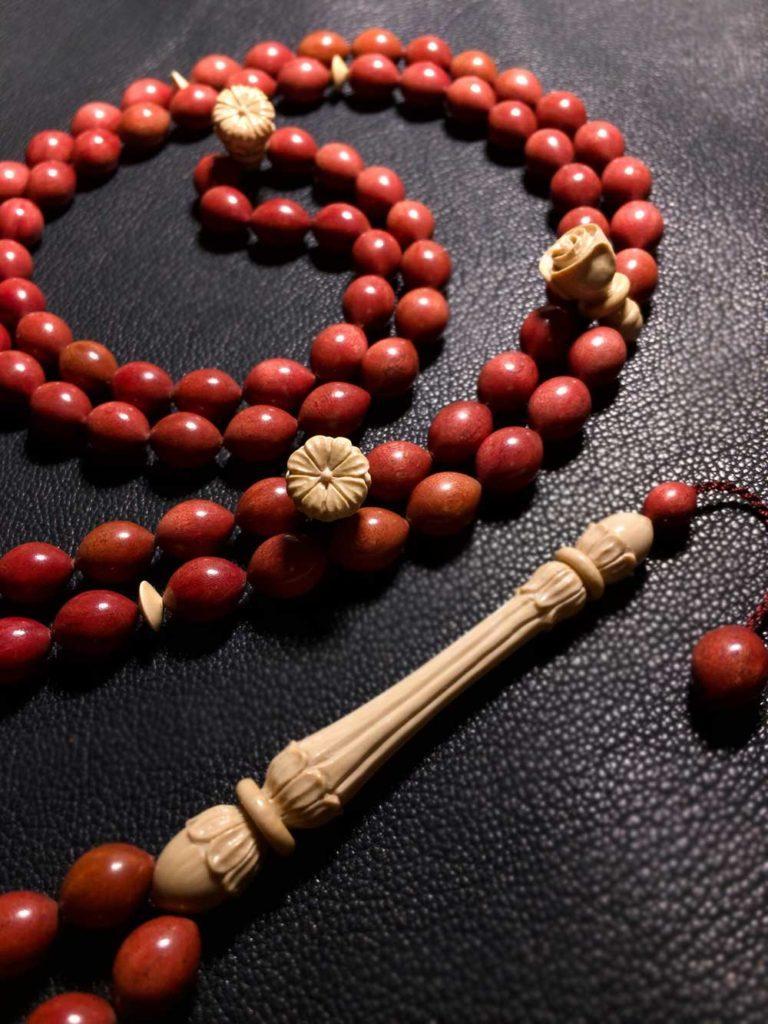
African ebony
African ebony is a dark wood, with heart wood that is almost black at times. It’s hard and dense, and polishes to a high lustre.
Ebony carves well and is often used for sculptures and items ranging from walking sticks and doorknobs to musical instruments. Recently, it has also regained popularity in the jewellery industry.
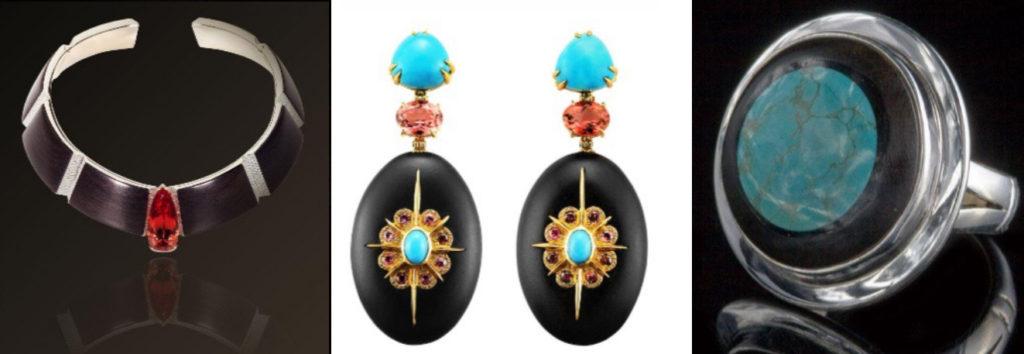
According to Benchpeg, “unique creations sculpted out of unusual materials have swept through the design cupboard.” Among these, the use of precious metals with rare, polished ebony has surfaced as a striking new trend.
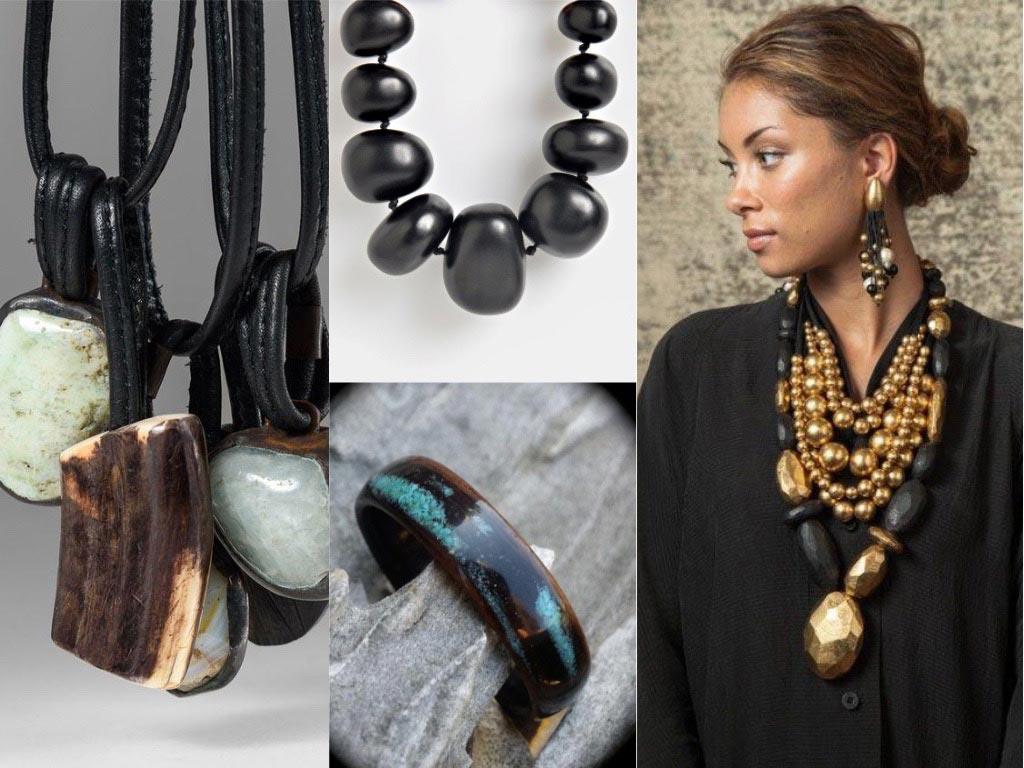
Leadwood
Leadwood is another very dark African hardwood, valued for its hardness and stability. It is increasingly popular as an alternative to African blackwood.
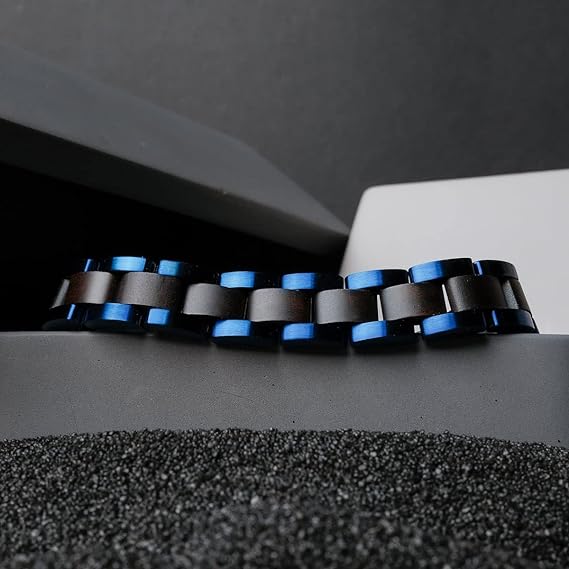
Leadwood turns and works well with a chisel. It offers a fine grain that sands and shines to a silky, glossy finish.
African olive wood
African olive wood is also known as wild olive wood. It has light to medium colouring with darker distinctive grain patterns. The wood darkens nicely with age.
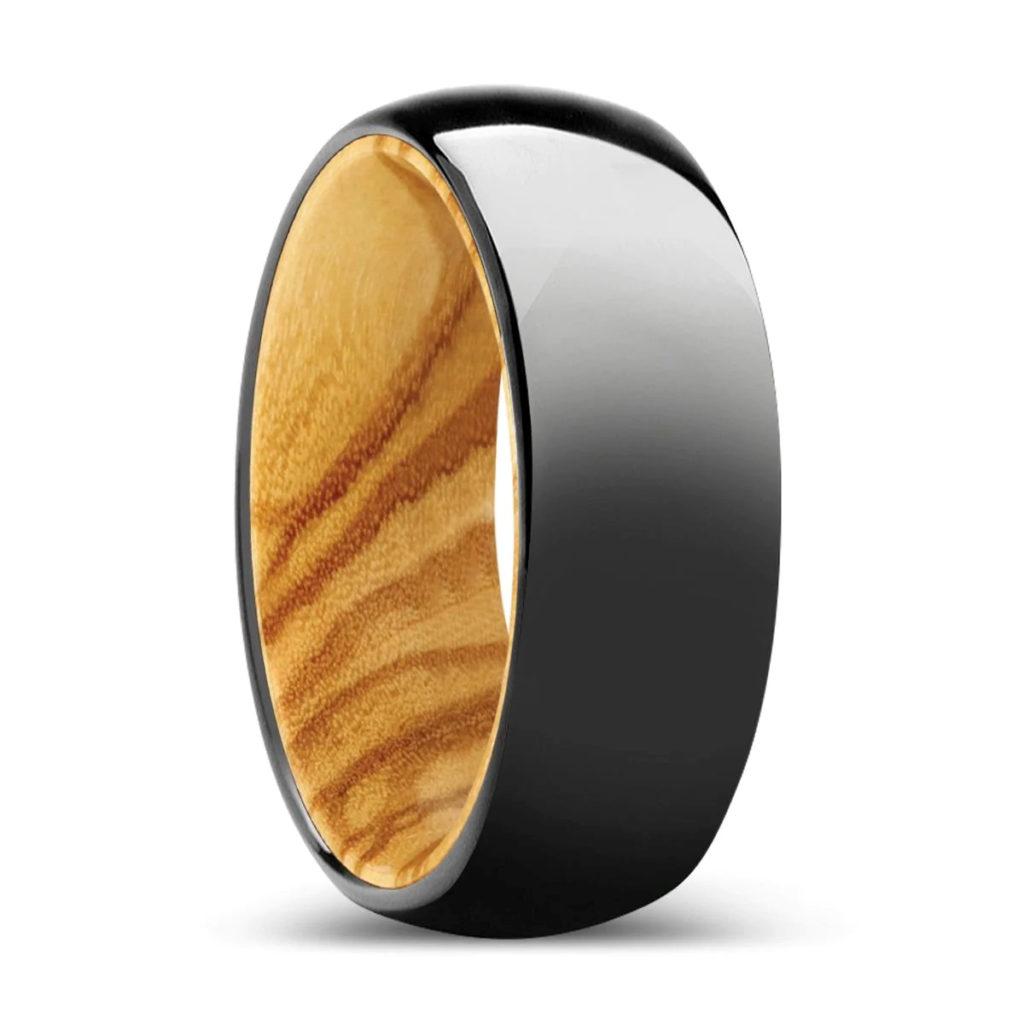
Olive wood is hard but works well on the lathe and with a chisel. It’s a popular wood with turners and carvers.
Ironwood
Ironwood, also called snake bean wood, has reddish-orange heartwood and white to yellow sapwood, with well-defined grain patterns.
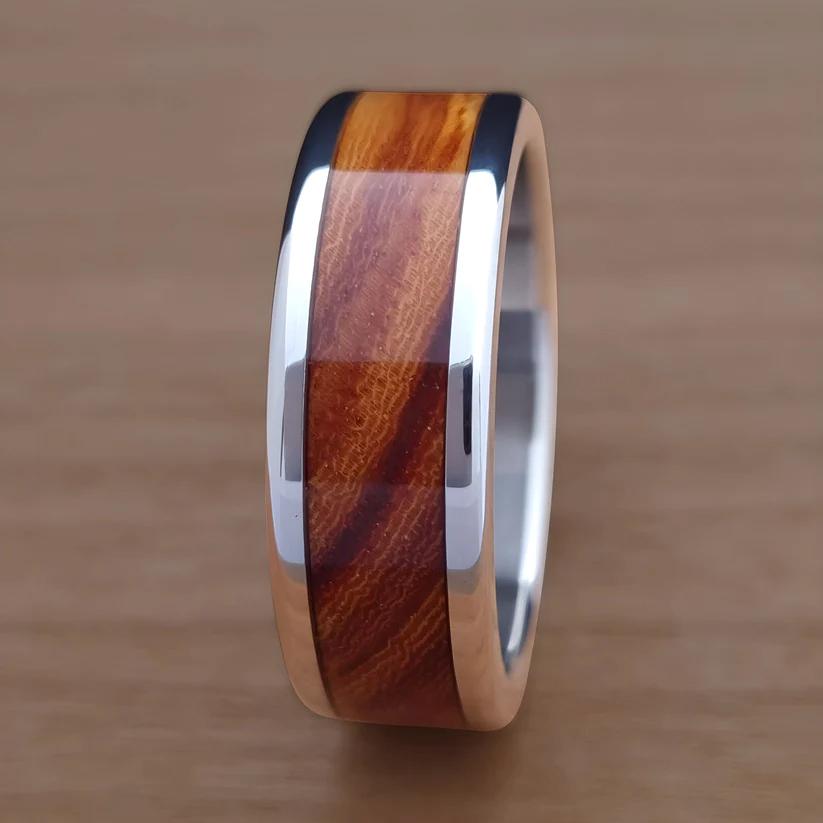
It’s a very dense hardwood but it turns and planes very well. It also polishes to an incredibly high shine.
Exotic hardwood blanks and combo packs for sale
ProSono Hardwoods offers African hardwoods of exceptional quality. All the hardwoods we supply are ethically sourced, expertly (and very slowly) air dried and cut to required dimensions.
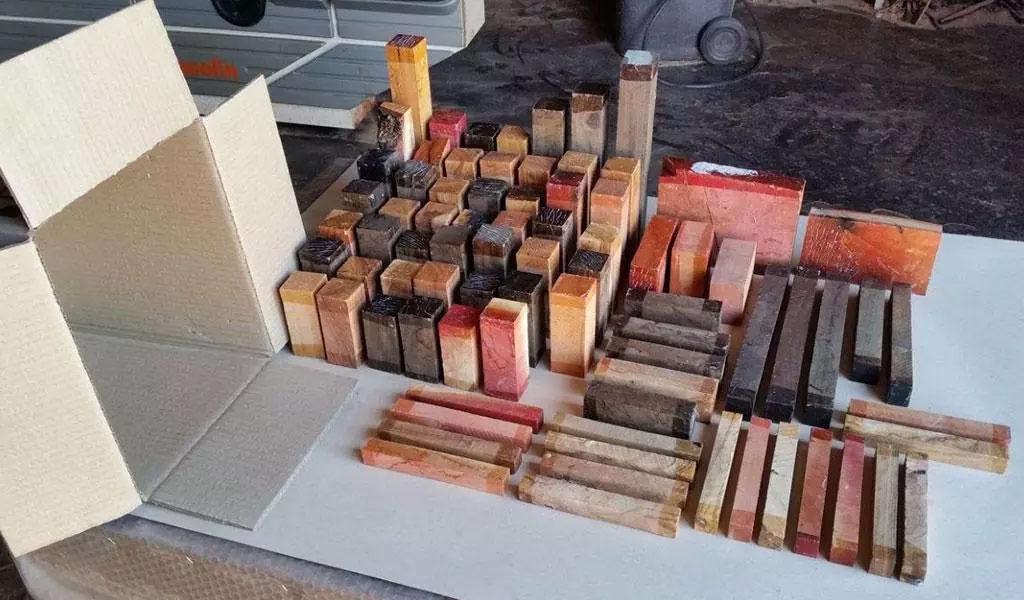
We also offer bulk hardwood combo packs. These include blanks of various sizes from multiple hardwood species – ideal for experimenting with different hardwoods.
To order exotic hardwood for jewellery or to discuss your hardwood needs, contact us at ProSono. We ship to customers worldwide.

